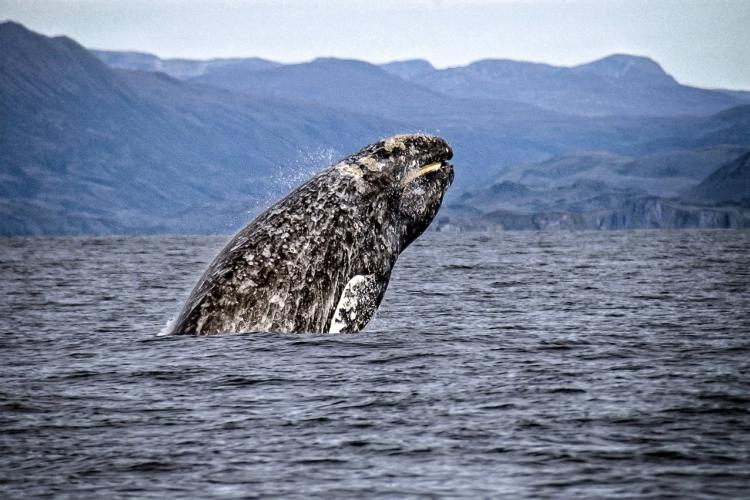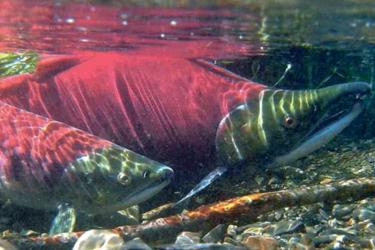The Alaska Fisheries Science Center’s Marine Mammal Laboratory conducts research to provide the scientific advice needed to manage and conserve gray whale populations in Alaska. conducts research to provide the scientific advice needed to manage and conserve gray whale populations in Alaska.
Stock Assessments
Resource managers need to know how many whales there are, where they are, and how their populations are changing. Our scientists collect this data and present it in annual stock assessment reports.
We conduct aerial and shore-based surveys to assess the distribution of gray whales. By determining the ratio of calves to adults, we can evaluate population health and trends.
In collaboration with researchers at other institutions, we have created a gray whale photo-identification catalog to identify individual whales. This allows us to follow the animals over time and learn about their habitat use and feeding patterns.

A Gray whale dives off the coast of Alaska.
Environmental and Behavioral Research

We study gray whale foraging in relation to prey abundances to better understand how gray whale populations respond to changing conditions in their environment. Our research suggests that gray whales may act as sentinels of change in the Arctic.
We documented the response of gray whales to both natural and manmade sounds and found that background noise has a profound effect on the vocal behavior of this coastal species. Whether modified behavior ensures that effective communication takes place in higher noise situations, without causing detrimental effects to individuals in the long term, remains to be tested.
All photos were taken under research permit.

